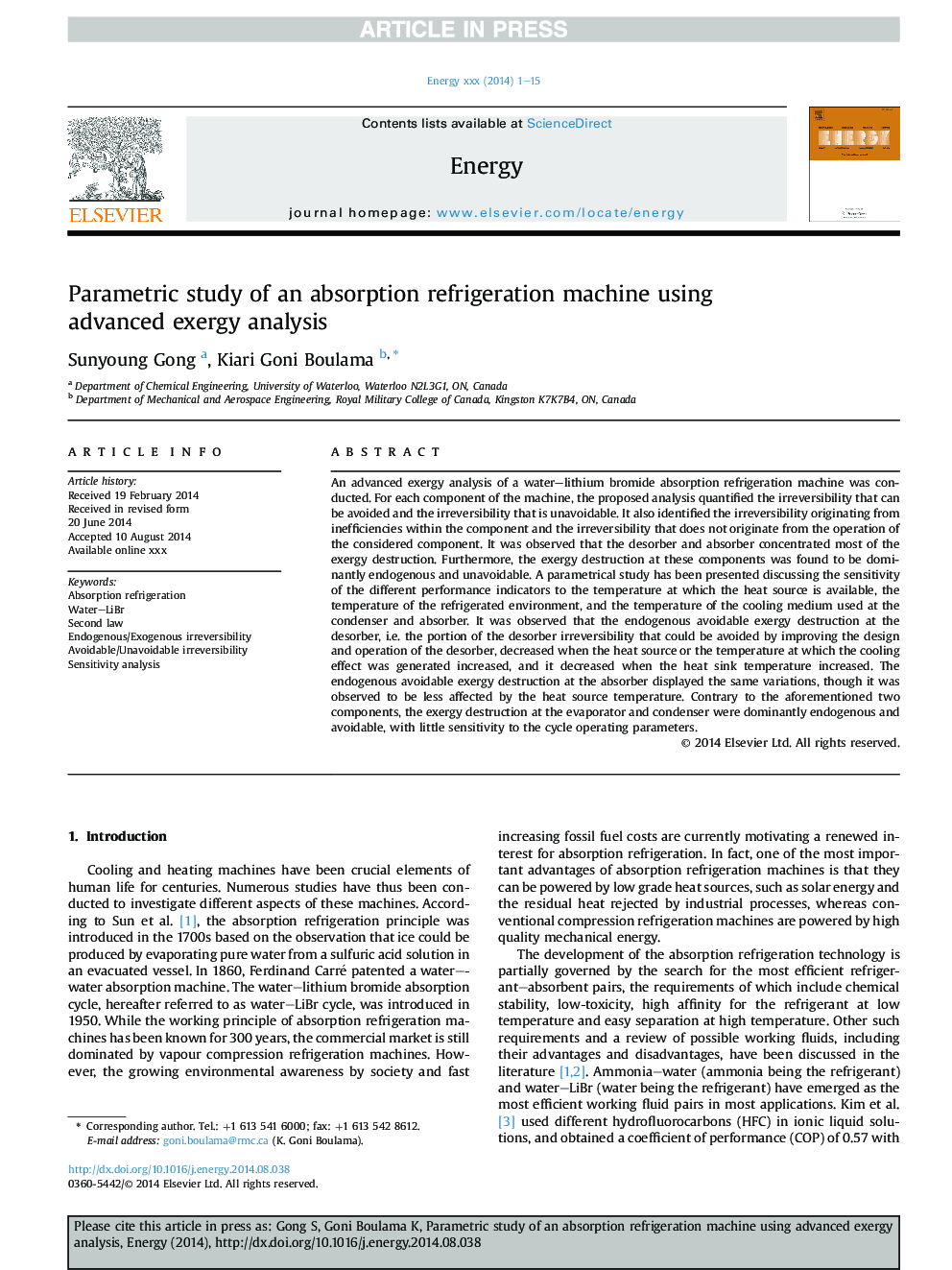| Article ID | Journal | Published Year | Pages | File Type |
|---|---|---|---|---|
| 8076802 | Energy | 2014 | 15 Pages |
Abstract
An advanced exergy analysis of a water-lithium bromide absorption refrigeration machine was conducted. For each component of the machine, the proposed analysis quantified the irreversibility that can be avoided and the irreversibility that is unavoidable. It also identified the irreversibility originating from inefficiencies within the component and the irreversibility that does not originate from the operation of the considered component. It was observed that the desorber and absorber concentrated most of the exergy destruction. Furthermore, the exergy destruction at these components was found to be dominantly endogenous and unavoidable. A parametrical study has been presented discussing the sensitivity of the different performance indicators to the temperature at which the heat source is available, the temperature of the refrigerated environment, and the temperature of the cooling medium used at the condenser and absorber. It was observed that the endogenous avoidable exergy destruction at the desorber, i.e. the portion of the desorber irreversibility that could be avoided by improving the design and operation of the desorber, decreased when the heat source or the temperature at which the cooling effect was generated increased, and it decreased when the heat sink temperature increased. The endogenous avoidable exergy destruction at the absorber displayed the same variations, though it was observed to be less affected by the heat source temperature. Contrary to the aforementioned two components, the exergy destruction at the evaporator and condenser were dominantly endogenous and avoidable, with little sensitivity to the cycle operating parameters.
Related Topics
Physical Sciences and Engineering
Energy
Energy (General)
Authors
Sunyoung Gong, Kiari Goni Boulama,
